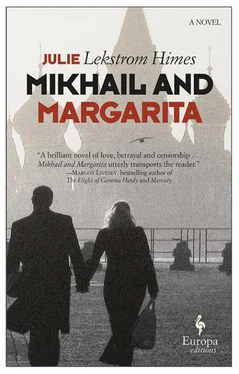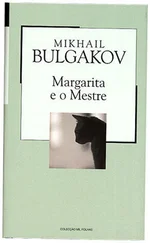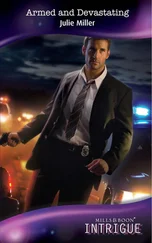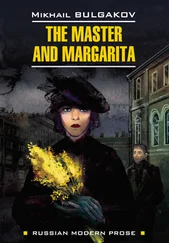Only Bulgakov and the soldier with the photographs were unmoved. The soldier tucked the page inside his jacket and went over to him, his hands held up on either side; perhaps not in submission so much as to be calming.
“That’s a nice piece you’re carrying, friend,” said the soldier. “I’ve not seen that model before.”
“It’s a Nagant.” Bulgakov leveled it at him. His intoxication appeared to have passed. “It can do tricks. Friend.”
Oh —why was he here? What could he hope to accomplish? The other soldiers had their weapons trained on him. This was too great a cost. She wanted to intercede, to take the gun with gentle suggestion. The child weighed upon her like a stone.
The soldier smiled stiffly. “Say, this is no way to behave.”
Bulgakov seemed to feign mild bewilderment. “But I’ve submitted the correct paperwork.”
“You’re giving these good people a scare.”
Bulgakov then looked amused. “I’d call it a chronic condition.”
The soldier was reaching for Bulgakov’s shoulder. Bulgakov stepped back and cocked the weapon, and the soldier withdrew. “What is it you want?” said the soldier. His face had paled.
Bulgakov looked at the Nagant as though it could answer. “I don’t want clean windows,” he said. He returned his attention to the soldier, though Margarita sensed his words were for her.
“I want what I cannot have.”
A desperate man would have no price. The room was hushed. The child put the doll’s head in her mouth.
The hand at Bulgakov’s side trembled. Was he ill, thought Margarita? Was he in his right mind? Even in those few weeks since they’d seen each other, he seemed transformed. But his words were clear and his voice familiar. She recognized his watch chain; it hung loose from his trouser pocket much as a bewildered hanger-on from a gentler world that was being made to suffer these recent hardships. She put her hand to her chest; beneath her shirt, the dial was cool on her skin.
“What is your name?” said Bulgakov.
“Yury—Yury Vladimirovich,” said the soldier.
“Yury Vladimirovich, do you believe in God?”
“Of course not.”
Bulgakov considered him. “Even as your chest might at any moment become a stew of bone and muscle? Someone in your position should want to squeeze out a small miracle from a benevolent spirit if they could find one.”
“No one believes anymore,” Yury’s voice seemed to fade.
“The ancients had a panoply of gods—for wood, for fire; one for wine, two for water—both salt and fresh.” He seemed to count them in the air with the muzzle of the gun. “Is it possible none have survived?”
“Well, there is no evidence to suggest—”
“Yet every human culture ever to exist, even our first and most primitive tribe, has evoked some higher being—what is it about us that we seek a Creator? Is it our soul searching for its larger self?”
“Look—I’m only a soldier.”
Bulgakov waved off his excuse. “You must admit we are different from other creatures. Can you name another that would stand as we do, one before the other, willing to kill—or to be killed—for something that is not food or property or even temporary dominance? For ideas as inconstant as principle or justice or love ? Is this what makes us so wretchedly human? Dare we call it a soul? And why would we want one? Indeed, why would anyone want us to have one? Yury—think! How malleable we’d be if we didn’t.”
From some corner there was a murmur of assent. Every eye was fastened upon them.
Would Bulgakov look at her? One glance—that was all she wanted. One last—she couldn’t think it. Find me —she thought fiercely. Don’t leave me.
Yury looked about the room as though for some ally. Bulgakov gazed at him sympathetically. The Nagant never lost its aim.
“It seems a rather old-fashioned concept,” said Yury; he appeared to take care with his words.
“Even dead souls have their value.” Someone behind them laughed aloud.
“Is it your intention then to save ours?” Yury looked doubtful of this.
Bulgakov smiled. “There is only one soul here I have in mind to save.”
Margarita touched her lips.
“Then you are a priest,” said Yury.
“There was a time I’d thought myself a shaman.”
“A professor, then? You seem to know a lot.”
“One must concede that books have uses beyond that of a doorstop.”
Another laughed; the sound quickly disappeared. The soldiers looked around.
“Perhaps if you tell me what you want?” said Yury. “We can talk like reasonable people. We can let these others go.”
Again Bulgakov seemed sympathetic. “They may not be the ones you should be concerned about.”
“I don’t think you want to shoot me.” Yury sounded both wistful and defiant in this.
Bulgakov put his hand on his shoulder. “Are you counting on my good nature? My compassion for the unlucky? My admiration for your courage—for I do admire you.” He seemed almost caring. “Are you hoping that with insanity comes poor aim?” He tucked the gun under the soldier’s chin. “Soulless creatures are not required to justify their acts, good Yury. Soulless creatures can stand in the sunlight without care for what they’ve done.”
There was a gentleness to Bulgakov’s embrace; an earnestness to the gun’s gesture, its touch like a parent’s, directing the chin upward, demanding good attention. Yury had seemed to have lost the capacity to blink. He stared into Bulgakov’s eyes, first one then the other; fear had taken all reason.
Bulgakov leaned in. “They tell us not to believe. How easy is it then to take it from us?” His face turned grim. “It won’t hurt, Yury. But I want mine back.”
He looked at her then. At long last. His expression, his eyes, they held her in place. They carried his deepest apology.
He turned the piece toward his own chest. It seemed more a gesture than intent.
No! —had she whispered? Had she shouted? A woman screamed. The soldiers closed in around him. There was a brief tussle, then he was horizontal, midair, with one on each limb. He struggled more as a madman now. Margarita could see only the soles of his shoes. Would this be her last image of him? She let the girl slip from her arms and she stood. She took a step toward him.
Someone held her back; it was Ilya.
The soldiers disappeared through the station doors carrying Bulgakov. Once they were gone, those waiting for the train seemed to rise as one, their voices growing; could they believe what had just transpired? They gathered their various luggage and packages and children and funneled onto the platform. Ilya directed her there as well.
“Will they not search the train?” she said. Surely there was some reason he would need to release her. His expression was stern, unreadable. Outside, the crowd had separated into individual streams, climbing into the various carriages. He propelled her into one. She could have escaped the soldiers more easily. Once inside, he found an empty compartment, then shut the door behind them.
“Let me go,” she said. He stared at her, uncomprehending. His back was against the door.
“I need to use the water closet,” she said. She reached for the handle. He brushed her hand aside.
“You can wait until we are under way.” He appeared then to work to control himself, to calm her down.
She turned to the window behind her.
“We’ll be leaving soon.” He was trying to sound confident, she knew. To invoke some anticipation for the trip. To appease her with the promise of safety and shelter and food.
“He made it possible for us to get away,” he added then, more gently. Was she indifferent to this?
Читать дальше












